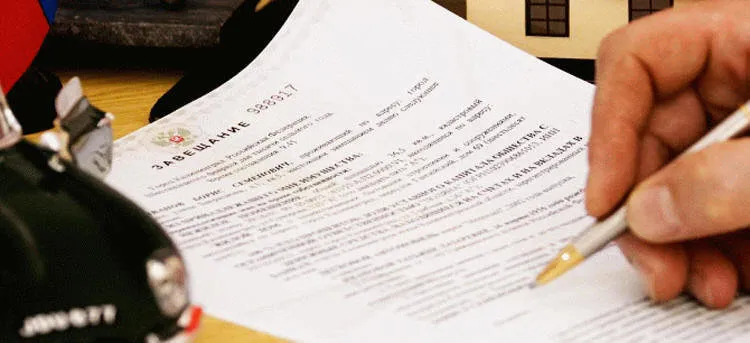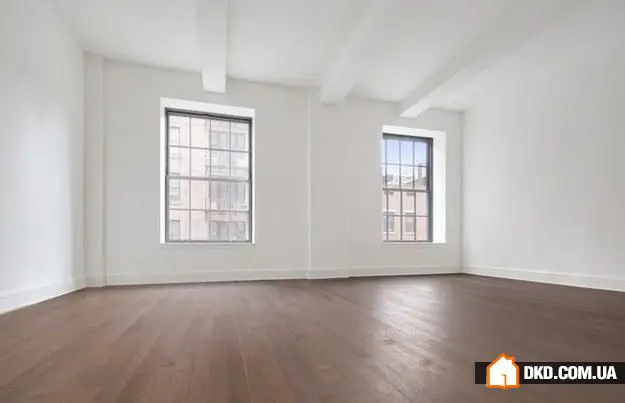4 Ways to Transfer Apartment Ownership to Another Person
We explain which options are most popular in Russia today, how scammers can deceive you, and what awaits the recipient under different methods of transferring residential property
There are currently 4 most common ways to transfer an apartment to the ownership of another person: purchase-sale, gift, inheritance, and lifetime lease. There are also less popular options like privatization, where one of the parties involved is the state. Each method has its own pitfalls that everyone should know about, even if they don't plan to sell or buy an apartment in the near future.
Vladimir Arestop, Legal Expert, Partner at the Advocacy Bureau "Root and Partners"
1. Purchase-Sale (and Exchange)
The most well-known and logical way to transfer an apartment to another person's ownership is to sell it. The concept is clear: the owner transfers the apartment for a fee. Usually, the buyer pays money, but it is also possible to draft an exchange agreement, i.e., swap equal living space.
However, there is a practice where relatives or friends conclude a purchase-sale agreement but do not actually pay money to the seller. Lawyers do not recommend doing this. The new owner will have to pay property tax in any case, and he must be financially ready for this. Secondly, if the seller and buyer fall out after receiving the apartment, the former can reclaim the apartment in court since no money was actually paid.
Also, if the apartment was purchased by a person who is married, the spouse has the right to claim half of the living space during a divorce. To make sure that the property is solely yours, you will need to draw up a prenuptial agreement.

2. Gift
There is an official contract for transferring property without compensation: the gift agreement. It is usually concluded between people in close relationships. Unlike purchase-sale, under a gift agreement the apartment is transferred to a specific person, meaning that the spouse of the recipient has no right to claim the gifted property in case of a divorce.
However, if the spouse can prove during a divorce that the market value of the apartment increased (e.g., due to renovation), it may enter into the joint property. The downside of a gift agreement is that the new owner still has to pay property tax. The only exceptions are gifts made between close relatives (parents and children, grandparents, spouses, full and half siblings).

3. Inheritance
Under a will, an apartment can be transferred to any person chosen by the owner of the residential property. If such a document was not created, the closest relatives of the deceased have the right to claim the property. This is called inheritance by law.
In both cases, the acceptance of the inheritance must be completed within six months. One rarely known pitfall is that a fee for the certificate of inheritance rights (up to 1,000,000 rubles) must be paid. Those who lived with the deceased at the time of death are exempted from payment.
Also, even with a properly drawn up will, there is an “obligatory share.” This portion of the inheritance belongs to a specific person regardless of what the testator decided. These people include minor children of the deceased or individuals who were dependent on the former owner of the apartment. The size of the obligatory share is half of what such an heir would have received by law.
Currently, amendments to the Civil Code (CC) are planned to introduce a new type of document – an inheritance contract. It differs from a will in that the conditions for inheritance are agreed upon by both parties – the current and future owner. In addition to transferring the property, the owner can set additional obligations for the heir to fulfill.

4. Lifetime Lease
A lifetime lease agreement can be concluded between two private individuals. The essence: the recipient must pay a certain amount of money to the owner of the apartment until death and provide for their maintenance. However, there are no specific requirements for the terms of such an agreement established by law, so how exactly the person will be supported is determined by the parties themselves in free written form without notarization.
Experts do not recommend using this method to transfer residential property, as both sides face a significant risk of being scammed. The owner can terminate the contract at any time, and after his death, heirs may appear who will claim the apartment. The recipient may fail to fulfill their obligations, and verifying this fact is quite difficult, which scammers often exploit.

Need a renovation specialist?
Find verified professionals for any repair or construction job. Post your request and get offers from local experts.
You may also like
More articles:
 Tips to Level Walls with Gypsum Board Yourself
Tips to Level Walls with Gypsum Board Yourself Pro Secrets: How to Make a Bed Like in a Good Hotel
Pro Secrets: How to Make a Bed Like in a Good Hotel How to Save Money on Renovation: Painting Walls and Ceiling Yourself
How to Save Money on Renovation: Painting Walls and Ceiling Yourself How to Remove and Store Winter Clothing Until Autumn: 10 Useful Ideas
How to Remove and Store Winter Clothing Until Autumn: 10 Useful Ideas 7 Useful Tips for Decorating a Kitchen in White
7 Useful Tips for Decorating a Kitchen in White How to Properly Maintain Plastic Windows: 7 Tips
How to Properly Maintain Plastic Windows: 7 Tips Quick Living Room Renovation: Step-by-Step Guide
Quick Living Room Renovation: Step-by-Step Guide To Combine or Not to Combine? Important Details of Bathroom Redesign
To Combine or Not to Combine? Important Details of Bathroom Redesign